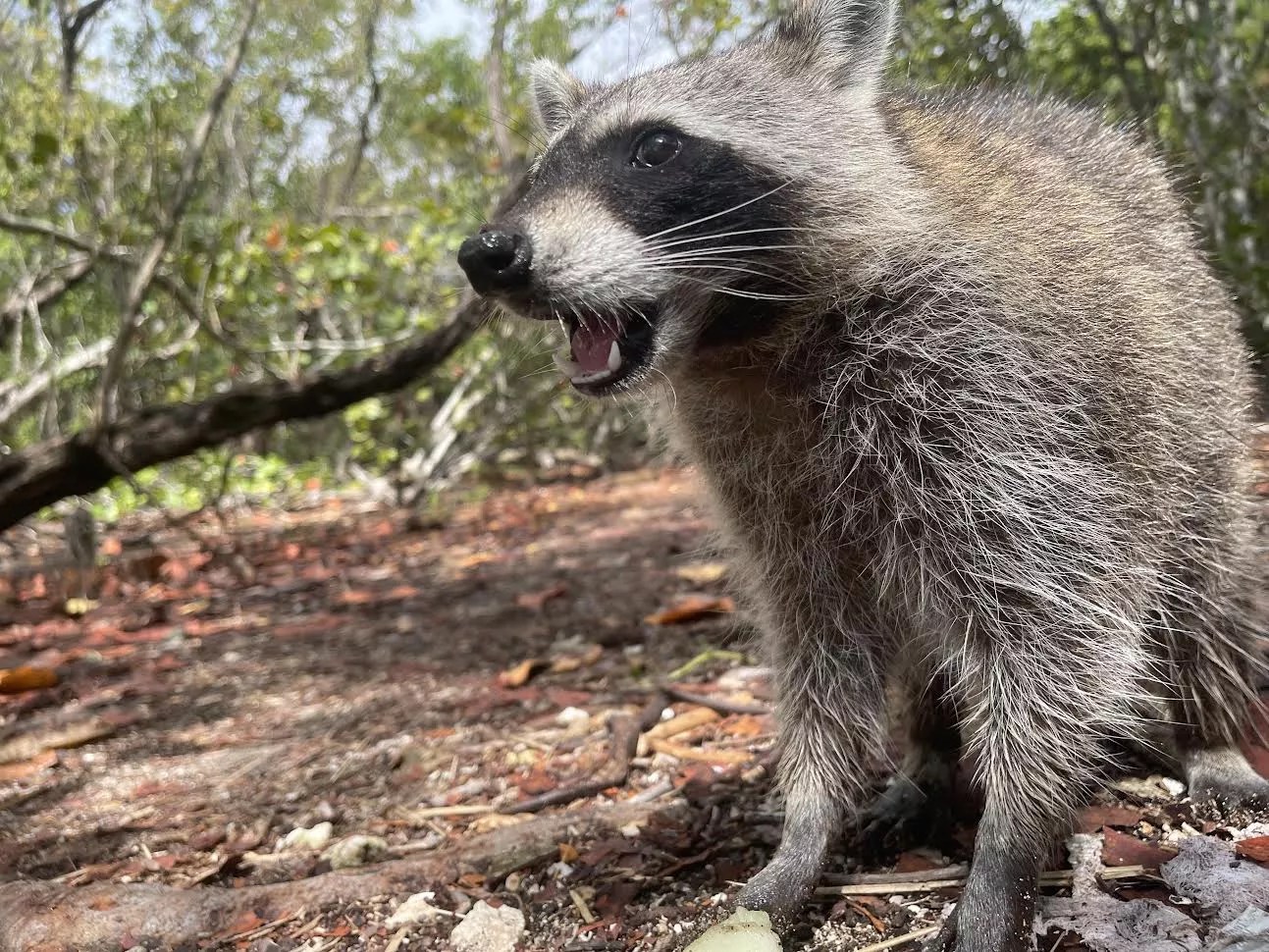
Photo by B. Scott McLendon

Audio By Carbonatix
The Florida Department of Health (DOH) in Broward County issued a rabies alert this week after confirming a case in a raccoon killed in Davie near Interstate 595.
Rabies is a viral disease spread mostly through bites or scratches from an infected, usually wild, animal. Doctors treat about 1.4 million people each year in the U.S. for potential rabies exposure, according to the Centers for Disease Control and Prevention (CDC). That’s why doctors urge patients to steer clear of wild animals like raccoons, bats, foxes, skunks, otters, bobcats, and coyotes, which carry a higher risk of human exposure and a need for rabies post-exposure treatment, according to the health department.
About 4,000 animal cases of rabies are reported in the U.S. each year, primarily in wild animals like raccoons, which the CDC refers to as a rabies reservoir. According to the DOH, Florida sees fewer than 100 animal cases of rabies annually.
The DOH alert lasts through November 16 and includes the following Broward County boundaries:
- Northern boundary: I-595
- Southern boundary: SW 26th St.
- Eastern boundary: SW 112th Ave.
- Western boundary: SW 148th Ave.
The health department offers the following tips for avoiding rabies exposure:
- Immunize all pets and livestock based on their veterinarian’s recommended schedule.
- When outside the house, keep pets under direct supervision and leashed or in a stroller. If a wild animal bites your pet or livestock, immediately seek a veterinarian for the animal and contact Animal Control Services for your area.
- Avoid physical contact with wild or stray animals, which includes direct feeding or unintentionally attracting them with outdoor pet food, open garbage cans, or other sources of food. If a wild animal scratches or bites someone, immediately seek medical attention and report the injury to the health department by calling 954-467-4700.
- Never adopt wild animals or bring them into your home; instead, contact a licensed wildlife handler.
- For issues with wild or stray animals in your neighborhood, rather than channeling your inner Steve Irwin, call animal services.
- Never allow wildlife to enter living spaces in homes, schools, or other locations where they might come in contact with people and pets.